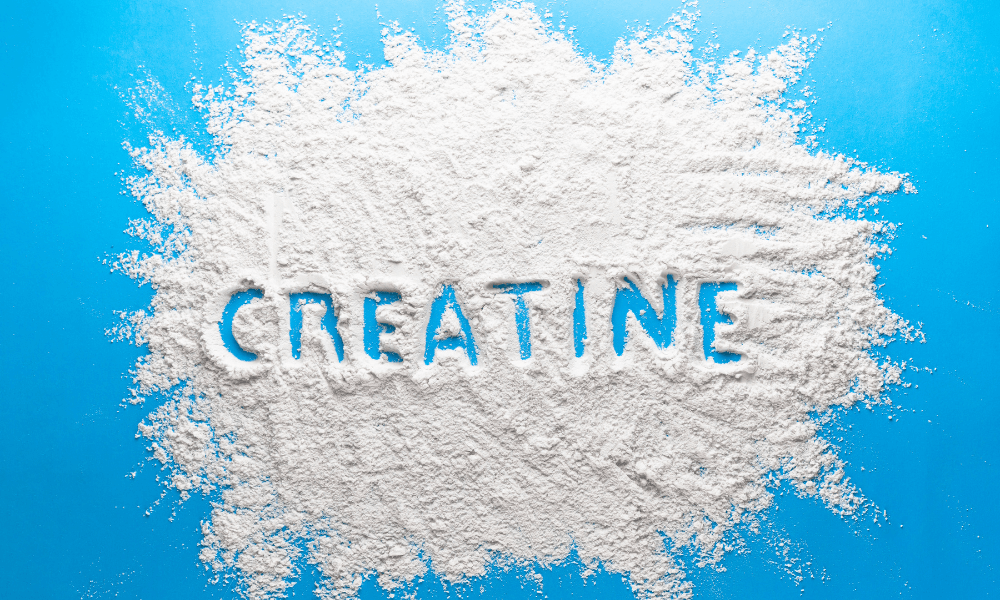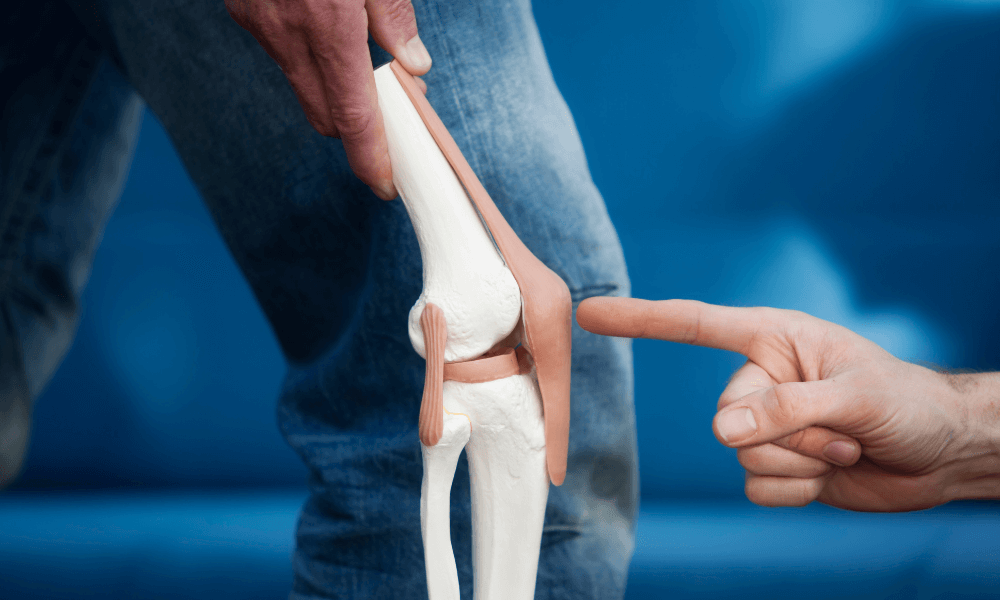Creatine serves as an energy store for the muscles. It is needed for energy regeneration in the muscles.
Creatine is mainly used for short-term, intensive physical exertion and in strength training. But non-athletes can also benefit from taking creatine.
In this article you will learn what creatine does in the body and what effects it has.
Creatine in food
Creatine is found primarily in animal foods. Plant foods contain only very small amounts of creatine.
The body can also produce creatine itself to a limited extent. This requires the amino acids arginine, glycine and methionine.
The daily creatine requirement is estimated at 1-3 g. About half is absorbed through food, the rest is produced by the body.
Competitive athletes have an increased need for creatine of up to 10 g per day. Certain illnesses can also increase the need for creatine.
The following foods are particularly rich in creatine: 1
-
Herring: 650 – 1,000 mg/100 g
-
Pork: 500 mg/100 g
-
Beef: 450 mg/100 g
-
Salmon: 450 mg/100 g
-
Tuna: 400 mg/100 g
-
Cod: 300 mg/100 g
-
Plaice: 200 mg/100 g
-
Milk: 10 mg/100 g
What does creatine do in the body?
Creatine restores energy used up in the cells. To understand exactly what creatine does, we need to take a little excursion into biochemistry. But it doesn't get too complicated.
The energy currency of cells is ATP. ATP stands for adenosine triphosphate and contains three phosphate groups. Energy is released when a phosphate group is split off from ATP. This creates ADP. ADP stands for adenosine diphosphate , which only contains two phosphate groups.
This is where creatine comes in: it can regenerate ATP very quickly. It provides a phosphate group that is needed to turn ADP back into ATP.
Proven effects of creatine
Creatine is one of the best-researched substances and there are many studies on creatine. The European Food Safety Authority decides which effects have sufficient meaningful data. These effects are officially recognized and considered proven.
The European Food Safety Authority confirms the following effect of creatine in its Health Claims Regulation: 2 3
-
The daily intake of 3g of creatine increases physical performance during explosive strength training as part of short-term intensive physical activity.
-
Daily intake of 3g of creatine can increase the effect of resistance training on muscle strength in adults over 55 years of age.
It is important to note that these effects have only been demonstrated with a daily dose of 3 g or more.
Effects of creatine that are currently being investigated
There are many other potential uses for creatine. However, these are still being scientifically investigated and have not yet been conclusively proven.
Creatine and muscle regeneration
During intensive strength training, microscopic tears develop in the muscles. During regeneration, these tears heal and the muscles become stronger. Studies indicate that creatine could accelerate regeneration after training. 4 5
Influence of creatine on mental performance
The brain uses large amounts of ATP when performing tasks that require a lot of concentration. It is therefore logical that creatine could improve concentration.
Creatine appears to be able to improve mental performance, particularly in stressful situations, when there is a lack of sleep and in combination with exercise. 6 7
Creatine in progressive neurological diseases
Initial studies show promising results in the neurological diseases Huntington's chorea, Parkinson's disease and amyotrophic lateral sclerosis (ALS) through the administration of creatine, especially in combination with coenzyme Q10 . 8 9
Effect of creatine on bone stability
There is evidence that creatine may improve bone stability, particularly when combined with strength training. 10 Strength training alone is an effective approach to increasing bone stability. Studies have not yet been able to clearly show whether creatine has additional benefits in terms of bone density when combined with strength training. 11 In the laboratory, however, creatine can stimulate the growth of osteoblasts (bone-building cells). 12
Creatine for muscle diseases
In people with progressive muscle diseases characterized by a loss of muscle strength (muscular dystrophies), the creatine content in the muscles is lower than in healthy people. Taking creatine can increase muscle strength. 13
Creatine for fibromyalgia
Creatine appears to have a positive effect on fibromyalgia . 14 In one study, taking creatine increased muscle strength, relieved pain, and improved quality of life. 15
Effect of creatine on heart failure
Like skeletal muscles, the heart muscle also needs ATP. In patients with heart failure, the creatine level in the heart muscle is too low. Initial studies show that creatine could be useful in heart failure, especially in combination with coenzyme Q10. 16 17
Can creatine cause hair loss?
There is a rumor going around that taking creatine can cause hair loss. The origin of this lies in a study on men in whom DHT levels increased after taking creatine. 18 DHT stands for dihydrotestosterone and is a male sex hormone. DHT can cause the hair root to shrink and an increased level can promote hair loss.
However, the study had many weaknesses and the results could not be reproduced in other studies. There is no evidence that creatine can actually cause hair loss.
Which form of creatine is recommended?
There are different creatine compounds, such as creatine magnesium chelate, creatine pyruvate, creatine citrate, creatine ethyl ester, creatine nitrate, creatine hydrochloride and creatine monohydrate.
Creatine hydrochloride and creatinine monohydrate are the two most common forms.
Creatine monohydrate is the best-researched form of creatine. Most creatine studies have been conducted with this form. If you want to be sure that creatine has the desired effect, you should use creatine monohydrate.
Buy creatine
There are big differences in the quality of creatine. That's why you should pay attention to quality features when buying.
-
Purity : It indicates whether it is pure creatine or whether it contains other ingredients-
-
Mesh factor : This indicates how finely ground the powder is. This affects the absorption of creatine. The higher the mesh factor, the better it can be absorbed.
-
Additives : It should be free from unnecessary additives such as colorings, preservatives, sweeteners and anti-caking agents.
-
Free from harmful substances : It should be tested for harmful substances to exclude contamination.
Viktilabs creatine monohydrate is ultra pure (99.9%), has the highest possible mesh factor (200), is tested for harmful substances and contains no additives. It is also vegan and contains no animal-based ingredients, and comes in recyclable packaging.

















